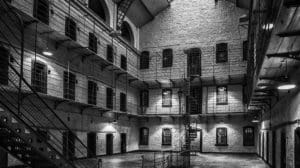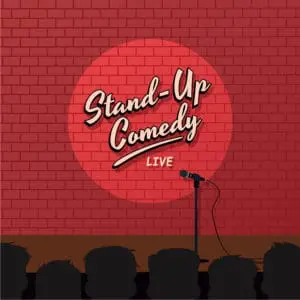The Tradition of Oral Poetry: Tracing Connections from Homeric Epics to West African Griots

Updated On: April 23, 2024 by Yasmin Elwan
Oral poetry is a foundational element of human culture, a tradition that has been the bedrock of storytelling and the preservation of history for millennia. Across diverse societies, this art form has crystallised collective experiences, encapsulating both the extraordinary and the every day into verse and melody. From the ancient Homeric epics, where tales of gods and heroes were weaved into majestic narratives, to the rich oral traditions of the Griots of West Africa, oral poetry has played an instrumental role in education, entertainment, and cultural continuity.

The Griots of West Africa, known for their unique blend of historical recounting, genealogy, and musical prowess, are quintessential guardians of oral tradition, with a heritage that sustains communities and influences modern storytelling. In these traditions, character, emotion, and the cultural lexicon are interwoven with rhythmic beats and harmonies, transforming narrations into vivid performances. The functions they perform within society are manifold, serving as educators, cultural advisers, and mediators, while their art is instrumental in fostering social cohesion and identity.
Historical Context of Oral Poetry

Oral poetry has long been a cornerstone of cultural expression, tracing its lineage through millennia and across continents. We find it deeply ingrained in the social fabric of ancient civilisations, where it served as a medium to preserve history, convey epic narratives, and reinforce communal bonds within societies often still in the throes of developing written language systems.
Emergence in Ancient Societies
In various corners of the ancient world, oral poetry emerged as a profound and pivotal form of storytelling. Bards and poets, holding esteemed positions, recited tales that encapsulated the morals, values, and myths of their communities. They were the custodians of history, singing of gods, heroes, and the great deeds of the past. These oral traditions laid the foundations for literature as we comprehend it today.
Oral Poetry in the Mycenaean Era
The Mycenaean era, a period famed for its fortifications and palaces, witnessed the flourishing of oral poetry. Our understanding of this time is framed through the lens of later poetic works that reference it. While the Mycenaeans themselves left records in a script known as Linear B, which primarily documented economic transactions, the grandeur of their society also echoes in the subsequently composed Homeric epics.
Homeric Epics as a Cultural Phenomenon
The Iliad and Odyssey, attributed to Homer, stand as monumental icons of oral poetry. Chronicling the exploits of heroes during the mythical Trojan War and its aftermath, these Homeric poems bridged the gap between oral tradition and the literary canon. The epics were composed of myriad formulaic expressions and repetitive elements that aided memorisation and recital, a technique built on centuries of oral storytelling practice. Later, poets like Hesiod would continue this tradition, linking oral narratives to recorded historical events and creating a rich tapestry of ancient Greek culture that continues to intrigue us to this day.
Characteristics of Oral Poetry

Oral poetry stands as a testament to human creativity, with specific features that distinguish it from written literature. It thrives on the collective memory of its audiences and the skill of its performers, embodying a tradition that spans across different cultures and epochs.
The Role of Improvisation
Improvisation lies at the heart of oral poetry, allowing poets to adapt their narratives to the immediate context and audience reaction. This spontaneous element ensures that each performance is unique, with oral poets often having to think quickly on their feet to maintain the flow and engagement.
Formulaic Expressions and Fixed Phrases
Oral poetry is characterised by its use of formulaic expressions and fixed phrases that serve as building blocks for the verse. These elements enable the poet to maintain the rhythm and structure of the poem while leaving room for improvisation. The formula used in Homeric epics, for instance, is a group of words regularly employed under the same metrical conditions, allowing for ease of composition and memorisation.
Memory and Memorisation Techniques
Memory plays a crucial role in oral poetry, with poets employing various memorisation techniques to retain and recount long narratives. From using rhythmic patterns to embedding refrains, these mnemonic devices help oral poets pass down stories and knowledge through generations without the need for written text.
The Griots of West Africa
Before considering the unique role of the Griot in West African culture, it is essential to recognise their dual function as both historians and musicians. They maintain a vibrant, living link to the past through their elaborate oral narratives and musical expertise.
Griot as Historian and Advisor
A Griot, also known as a Jali or Jeli, fulfils a crucial role in preserving West African oral traditions. Entrusted with the histories of their people, they recount genealogies, historical events, and folklore, ensuring that such knowledge is passed down through generations. This role extends beyond mere storytelling; griots are key advisors in their communities, guiding leaders with wisdom gleaned from the past.
Musical Accompaniment and Instruments
Music forms the backbone of Griot’s narrative technique. By employing instruments like the kora—a long-necked harp-lute with 21 strings—and the balafon, a type of wooden xylophone, griots bring to life their tales for audiences. These instruments do not merely accompany the griot; they are integral to the performance, enhancing the emotional resonance of the oral traditions and allowing for a deeper connection with the listeners.
The Art of the Griots
In the vibrant tapestry of West African culture, griots are the master weavers of words entrusted with the preservation of their communities’ heritage through oral poetry and song.
Genealogies and Historical Narratives
Genealogies: The foundation of griots’ craft lies in their intricate recounting of genealogies. We hold the complex family lineages in our memories, often conveyed through rhythmic storytelling that underscores the heritage and ancestry of individuals and tribes. This custodial role encompasses not simply the retelling of names and connections but the weaving of personal traits and historical deeds into a rich narrative tapestry.
Historical Narratives: Our responsibilities extend to the safeguarding of historical narratives. Griots serve as living libraries, narrating events that span centuries, immortalising heroes, and ensuring that lessons of the past remain in the collective memory. The blend of historical accounts with elements of folklore enriches the understanding of our people’s past.
Themes and the Role of Storytelling
Themes: Central to our narratives are themes that resonate deeply within West African society. They may include valour, honour, and social responsibility, charting the course of personal and collective morality. By echoing the trials and victories of bygone eras, we instil a sense of continuity and identity among our listeners.
Role of Storytelling: Storytelling is the lifeblood of the griot tradition, performed with a purpose that transcends entertainment. Through this art, we educate, preserve societal values, and offer counsel. Griots are instrumental in conflict resolution, imparting wisdom through parables and cautionary tales, thereby nurturing the social fabric.
The performance itself is an intricate act combining speech, song, and often the playing of instruments such as the kora—a 21-stringed harp-lute integral to the griot’s repertoire. Our role as storytellers is dynamic, adapting epics and folklore to resonate with contemporary audiences while retaining the essence of our epic traditions.
Societal Influence and Functions
In the rich tapestry of human culture, oral poetry not only entertains but serves pivotal roles in societal cohesion and cultural preservation. We see it acting as a vital conduit for the values and histories of a community.
Mediator and Promoter of Peace
Oral poetry has often served as a mediator in society. Through poignant narratives and persuasive rhetoric, poets have been able to address conflicts and promote peace. For instance, in the context of Homeric epics, the recitation of these works conveyed moral lessons on the virtues of honour and the futility of war. In a similar capacity, gawlo, or the traditional West African griots, utilised their storytelling to soothe tensions and counsel leaders, subtly influencing the outcomes of potential disputes.
Cultural Preservation in Griot Societies
The role of griots in cultural preservation is paramount within their societies. These custodians of oral tradition have been instrumental in maintaining the integrity of cultural traditions. The griots, through their extensive knowledge of ancestry and history, have kept alive the stories and accomplishments of their people, passed down through generations. This transmission not only entails factual retelling but also the use of music and performance to engage and reinforce community values.
Notable Characters and Episodes
In exploring the rich tapestry of oral poetry, we come across figures so monumental that they transcend time and culture. Their stories, passed down through generations, continue to fascinate us with their depth and vitality.
Legendary Heroes and Oral Accounts
Odysseus stands as a paragon in the world of epic poetry. Our understanding of his cunning intelligence and lengthy journey home, depicted in the Odyssey, underscores the oral tradition’s role in immortalising heroes. His encounters with mythical creatures and divine entities highlight the essence of heroic epics.
The heroes of oral tradition are often linked with the touchstones of their respective cultures. For example, Sundiata Keita is not only known as a formidable military leader and founder of the Mali Empire but also as the protagonist of the Epic of Sundiata. The epic chronicles his life—from a struggling prince of a royal family to the unifier of the Mandinka people.
Prominent Griots and Epic Tales
The role of Griots in West African society mirrors the importance of such figures in other cultures. These oral historians, through spoken word and song, weave narratives that reflect the long-held traditions and lineage of their people.
Their tales are not mere stories; they serve as communal memory, conveying the histories of distinguished individuals such as Sundjata and binding together generations with a shared past. The Griot’s capacity to recite extensive genealogies and epic tales confirms their indispensability in preserving culture.
Through their mastery of verse and unwavering voice, these characters and their Griots reveal the sweeping scope of our shared human narrative. Whether through the chronicles of heroic figures or the resonant accounts of Griots, the tradition of oral poetry endures as a testament to our collective history.
Transmission and Evolution of the Artform
In tracing the journey of oral poetry, it’s essential to consider how the tradition has been preserved and transformed across generations. Storytellers and bards have been pivotal in maintaining the cultural heritage through their poetic techniques.
The Homeric Question and Scholarship
The Homeric Question investigates the origins and authorship of the ancient Greek epics attributed to Homer. As scholars, we examine whether these works were created by a single individual or evolved through generations of bards refining and transmitting the stories. This ongoing scholarly debate informs our understanding of poetic technique and oral tradition’s role in the epics’ development.
Changes in Oral Poetry Through Time
Oral poetry’s evolution reflects the changes in societies and mediums. From the Odyssey to the performances of griots in West Africa, oral traditions have adapted, embracing new themes and methods to resonate with contemporary audiences. The storytellers of today are descendants of the ancient poets, inheriting an art form that remains alive and dynamic, ever responsive to the times.
Oral Poetry in Contemporary Times
In contemporary times, oral poetry remains a vibrant and evolving form of artistic expression, continuing to resonate with audiences worldwide through a variety of media channels.
Oral Poetic Forms Beyond Africa
Oral poetry is not confined to the African continent; it thrives in disparate cultures around the globe. In the United States, for instance, slam poetry competitions breathe new life into this age-old tradition, with poets delivering powerful, impromptu performances. These events celebrate the poet’s capacity to engage the crowd, much like the revered Griots of West Africa. Similarly, France has seen a resurgence of interest in chanson, a form integrating oral poetry with music, a testament to the enduring nature of the oral tradition in Europe.
Integration of Tradition in Modern Media
Today’s media platforms have taken on the role of the ancient fireside, where oral traditions were once shared. Contemporary methods of sharing oral poetry range from podcasts and radio broadcasts to digital video platforms. Such media are not just preserving traditional forms—they’re transforming them, adapting old customs for new audiences. It’s a dynamic interplay between the past and present, ensuring that oral traditions continue to inform and inspire our global cultural tapestry.
Diverse Roles of Poets and Singers

Poets and singers have long played integral roles in various societies, acting as preservers of culture, historians, and social commentators. Their performances are essential to sustaining the oral traditions and social fabric of their communities.
The Griot as a Political and Social Entity
Griots, or jeliya in the Mande context, hold a revered position within their societies. Being much more than mere entertainers, these hereditary poets and singers serve as custodians of oral tradition and history. Often referred to as griots in the case of men, or griottes for women, they recount the history of the Mande peoples as well as other groups like the Fula, Hausa, Songhai, and Yoruba. Their artistry in singing, storytelling, and playing instruments like the kora is matched by their role in diplomacy. Griots often act as advisors to political leaders and negotiate on behalf of their community, lending their voice to maintain social harmony and political stability.
The Epic Singer’s Place in Society
The epic singer, often known as an arokin among the Yoruba, possesses a distinctive place in society, embodying the identity and values of their people through performance. Their epics, rich in historical and mythological content, serve as a medium to impart cultural norms, wisdom, and collective memory. The significance of such singers is evident in the reverence for Homeric epics in ancient Greece, where rhapsodes transmitted tales of heroism and the divine. In African societies, these talented individuals utilise their narratives to educate, inspire, and reinforce societal values. By weaving together music and storytelling, they offer both entertainment and moral instruction, ensuring the continuation of time-honoured customs.
Influence on Global Storytelling Traditions
The widespread reach of oral poetry has indelibly influenced storytelling across various cultures, particularly through the rich Griot tradition of West Africa and the resonant epics of the Homeric poets. These traditions demonstrate the power of the spoken word in shaping narratives globally.
Connections to Other Oral Traditions
The South Slavic epic traditions stand as a testament to the enduring legacy of oral poetry. Much like the Griots, South Slavic bards have preserved historical narratives and cultural values, often performing them accompanied by musical instruments. This shared heritage of oral performance can also be seen echoed in the Guslar musicians who sustain the storytelling customs of their ancestors through their epic songs.
The cultural exchange facilitated by trade routes and migrations allowed for the interweaving of oral traditions, amplifying their reach and impact. Narratives once confined to a specific region traversed continents, enriching global storytelling practices. This fusion of styles and tales has given rise to new art forms while preserving the integrity of the original narratives.
Cross-Cultural Impact of the Griot Legacy
The Griot legacy of West Africa, with its repository of oral histories, poetry, and music, has a significant cross-cultural impact. Griots, as oral historians and cultural custodians, have a profound influence on the American blues and other musical genres, with their rhythm and narrative style resonating within the diaspora’s artistic expressions.
The global influence of such oral poetry traditions underscores the universality of storytelling. As cultural ambassadors, modern Griots continue to pass on their vibrant heritage, inspiring contemporary artists and storytellers worldwide and ensuring that the power of the spoken word remains a connective force across different cultures.
Frequently Asked Questions

In this section, we explore some of the key aspects of West African oral traditions and their impact on history and contemporary life.
How does the Epic of Sundiata enrich our understanding of West African history?
The Epic of Sundiata offers a valuable window into the Mali Empire’s past, revealing the social structures, customs, and beliefs of the time.
What are the roles and significance of griots in maintaining West African culture and history?
Griots hold the esteemed position of historians, genealogists, and advisors, serving as crucial conduits for oral history and cultural preservation in West African societies.
In what ways do West African oral traditions continue to influence contemporary life?
Oral traditions in West Africa influence modern life through music, storytelling, and education, reinforcing a shared cultural identity and moral values across generations.
How have griots contributed to the preservation of history and tradition in West Africa?
Through their narratives and musical performances, griots have been instrumental in the preservation of history and oral traditions, passing down vital information within communities.
What types of instruments do griots traditionally use to accompany their storytelling?
Traditionally, griots use instruments like the kora, a 21-string lute-bridge-harp, and the balafon, a type of wooden xylophone, to add musical depth to their storytelling.
Can you provide examples of renowned griots and the tales they recount?
One renowned griot, Djeliba, is known for his recitation of the Epic of Sundiata, while others, such as Salif Keita, have achieved international fame, blending traditional griot tales with contemporary music.






